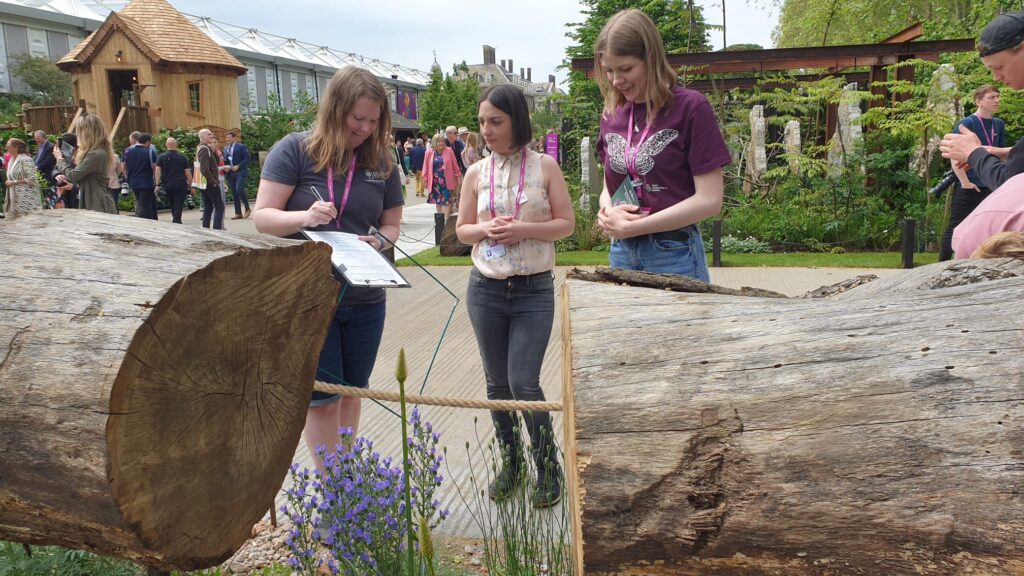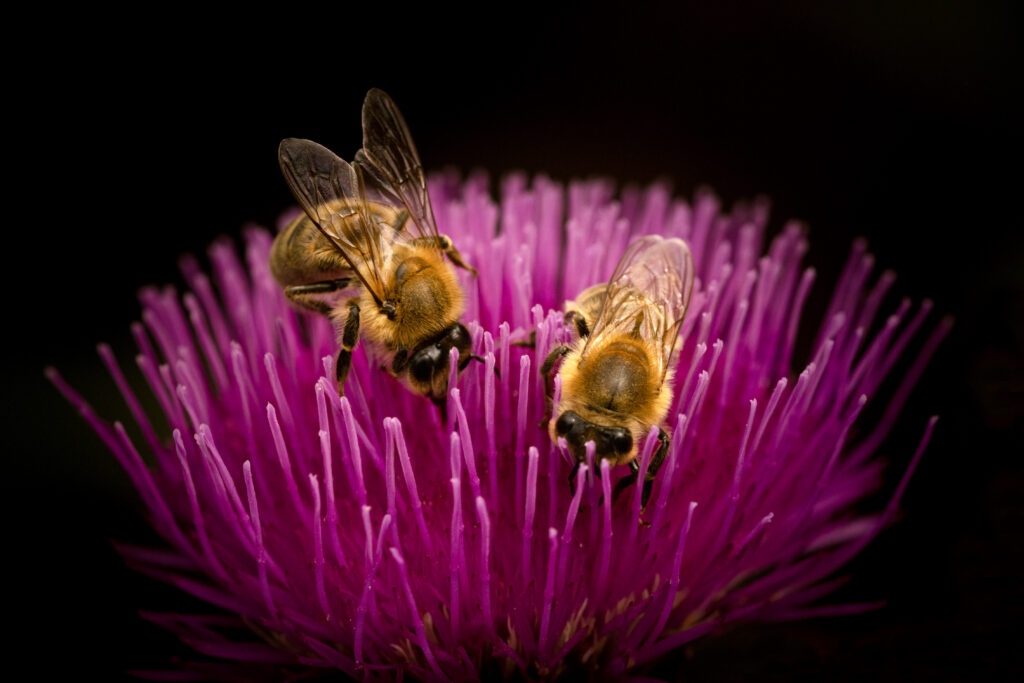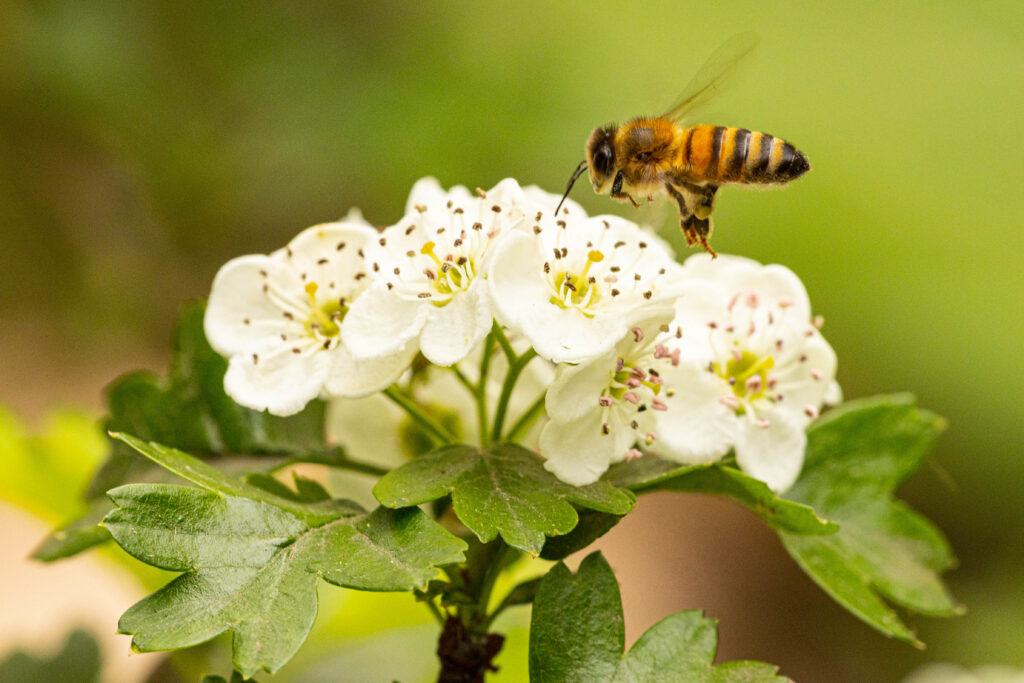Scientists to monitor pollinators in RHS Chelsea Flower Show first
Scientists will record pollinator numbers at the Royal Entomological Society Garden at the RHS Chelsea Flower Show, the first time this kind of monitoring has been done at the show.
 Hayley Jones, Emilie Aimé and Ashleigh Whiffin conducting pollinator observations at the RES Garden.
Hayley Jones, Emilie Aimé and Ashleigh Whiffin conducting pollinator observations at the RES Garden.
Entomologists from the RHS and Royal Entomological Society (RES) will carry out Flower-Insect Timed (FIT) counts1 of any insects landing on pollinator favourites in the garden, such as angelica, hawthorn and borage. The data gathered will add to a growing body of evidence illustrating the importance of gardens for wildlife. Recorders also hope to demonstrate the feast the thousands of flowers at RHS Chelsea put on for pollinators in the area each year, with the Flower Show providing an additional late-spring food source for the insects.
The RES Garden, designed by Tom Massey and supported by Project Giving Back, will show how remarkable the insect world is and raise awareness of the interdependent relationships insects have with humans. The garden features a unique outdoor laboratory, inspired by a compound insect eye, to view and examine insects up close, alongside wildlife-friendly features including pools, dead wood and planting designed for pollinators. Hawthorn, Judas tree and quince are all trees that provide an important nectar source for pollinators and will be growing within a species-rich planting scheme, including plants often found thriving on brownfield sites such as dandelions and clover.
Visitors to the show will see entomologists carrying out their counts every day at Chelsea in the afternoons and they will be available to talk to show-goers about the insects they are recording and that have visited the garden.
An AI moth trap, supplied and operated by the UK Centre for Ecology & Hydrology, will help record night time visitors to the garden, while Bakers Consultants are installing a ‘soil listening station’ to record and analyse the sounds generated by microscopic insects and other invertebrates within the soil as an indication of its biodiversity and health.
 Honeybees on milk thistle © Tammy Marlar
Honeybees on milk thistle © Tammy Marlar
“We are really looking forward to carrying out counts of pollinators at this year’s RHS Chelsea Flower Show, showing what a difference gardeners can make for wildlife on their patch. It’s great to join forces with the RES to highlight and study our amazing garden insects. Flying pollinators are adapted to make use of short-lived flowers, but we’re very curious to see how many pollinators make the most of the floral feast at Chelsea.”
Dr Hayley Jones, RHS Senior Entomologist
“It’s so important that we show entomology in action to inspire and enthuse a new generation of insect scientists and we’re thrilled to be working alongside colleagues from the RHS to do just that on our garden at Chelsea this year.”
Fran Sconce, Senior Outreach & Learning Officer at Royal Entomological Society
 Honeybee on hawthorn © Tammy Marlar
Honeybee on hawthorn © Tammy Marlar
The Chelsea gardens also go on to be a lasting resource for pollinators. For example, in 2022 the RHS and BBC Earth partnered to create the BBC Studios Our Green Planet and RHS Bee Garden at Chelsea, filled with pollinator-friendly plants, which went to live on at St George’s Church of England Primary School in Camberwell. To demonstrate the importance of the garden for pollinating insects an AgriSound Polly machine was installed at the school. The device automatically measures pollinator activity in the garden and has shown that on average the garden enjoys 78 bee visits each day, and since installation last autumn the garden has hosted over 2,000 pollinators.
“We are thrilled to see the Royal Entomological Society and the RHS continue to support pollinators and collect vital data to ensure that we can protect these important insects. Data collected at St George’s Church of England Primary School by our monitoring device has helped to show the impact that gardens can play in protecting pollinators and will dovetail with the manual insect counting being performed at Chelsea this year.”
Founder and CEO of AgriSound, Casey Woodward
Thanks to funding from Project Giving Back and in partnership with Lendlease, the RES Garden will live on after the show at IQL Stratford as a lasting resource for urban insects and an inspiring place for learning about insects for many years to come.
A limited number of tickets to RHS Chelsea Flower Show are currently still available: www.rhs.org.uk/chelsea
For more information, contact Claire Thorpe: clairethorpe@rhs.org.uk
1 – More information the UK Pollinator Monitoring Scheme and how to carry out FIT counts can be found at: https://ukpoms.org.uk/fit-counts
For more information about the Royal Entomological Society Garden, including a plant list, visit www.royentsoc.org/chelsea or email: hello@bloom-pr.co.uk
About the RHS
The Royal Horticultural Society (RHS) was founded in 1804 and is the UK’s largest gardening charity.
The RHS vision is to enrich everyone’s life through plants, and make the UK a greener and more beautiful place via its inspirational gardens and shows, science research and advisory, extensive library collections and far-reaching education and community programmes. With over 600,000 members the RHS also shares its horticultural knowledge and expertise with millions of people every year through its website and publications.
In 2021, the RHS launched its Sustainability Strategy, committing to be net positive for nature and people by 2030. The supporting RHS Planet-Friendly Gardening Campaign will continue to harness the power of the UK’s 30 million gardeners to help tackle the climate and biodiversity crisis.
We are solely funded by our members, visitors and supporters.
For more information visit www.rhs.org.uk
RHS Registered Charity No. 222879/SC038262
About AgriSound
Founded in January 2020 by agri-tech expert, Casey Woodward, AgriSound is a York-based technology company with a focus on pollination innovation. The creation of technology to look after bees in hives as well as monitor them in commercial agricultural spaces aims to revolutionise beekeeping and farming culture around pollinators like bees. One of its newest project aims to revolutionise the understanding and care of mason bees, making ground-breaking steps into new markets that could potentially change the face of agricultural pollination using mason bees.
Its ground-breaking insect monitoring device – Polly – measures temperature, light and humidity and listens 24/7 for the sounds of insects, using advanced sound-analysis to deliver real time data to enable immediate intervention.
Since its establishment, AgriSound has partnered with a number of companies and projects, including Tesco and the WWF, M&S, Dyson Farming, innocent drinks, National Trust Scotland and Royal Horticultural Society, to spread the message worldwide and is continually looking for opportunities to branch out further.
For more information, visit the AgriSound website